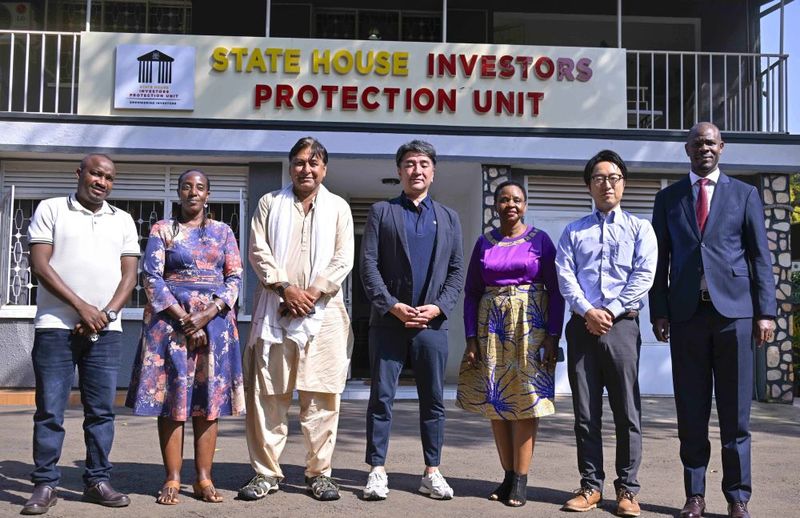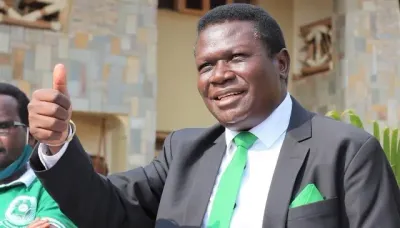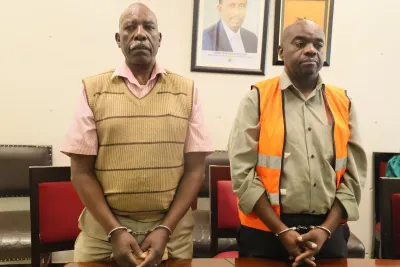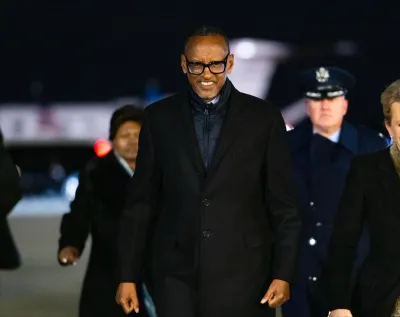
Economy
State House Reaffirms Investor Protection as Japanese Car Dealer Yoshino Motors Eyes Expansion in Uganda
The Ugandan government has reiterated its commitment to safeguarding foreign investment as Japanese automobile company Yoshino Motors marked 13 years of operation in the country and explored expansion opportunities.
The assurance was delivered Wednesday by Col. Edith Nakalema, head of the State House Investors Protection Unit (SHIPU), during a meeting with Shunsuke Nakanishi, CEO of Yoshino Motors, and Abas Ali, the company’s Managing Director in Uganda. The meeting took place at the SHIPU offices in Kampala and underscored the State’s drive to attract and retain credible international investors.
“We are happy and honored to receive the CEO of Yoshino, a reputable group of companies from Japan,” Nakalema said. “Africa, and in particular Uganda, still holds immense potential for companies like yours to grow.”
Yoshino Motors, which specializes in importing, re-exporting, and trading Japanese vehicles, has created over 50 jobs in Uganda since its entry into the market 13 years ago. The company was founded in 1959 by Nakanishi’s grandfather and has steadily expanded its footprint across Africa.
Col. Nakalema emphasized the government’s ongoing reforms to promote transparency and efficiency in investor engagement. She highlighted the Uganda Electronic Investors Protection Portal, an initiative developed in collaboration with the National Information Technology Authority (NITA-U), which enables direct access to verified services from government ministries, departments, and agencies (MDAs).
“This digital portal allows legitimate investors to interact directly with key government entities like URA, URSB, and UIA without going through middlemen,” Nakalema said. “It is part of His Excellency the President’s directive to streamline investment processes and eliminate fraud.”
Nakalema encouraged Yoshino Motors to explore additional sectors beyond vehicle imports, noting Uganda’s welcoming business climate and abundance of untapped opportunities in manufacturing and renewable energy. She praised the Japanese company’s long-term investment culture and commended Nakanishi for his confidence in Uganda’s future.
Nakanishi responded with optimism, describing Uganda as a promising destination for Japanese investors.
“Thirteen years ago, we chose Uganda because of its unique growth potential, and we have never looked back,” he said. “We see a bright future here, not only in automobile trade but in potential areas like vehicle assembly, parts manufacturing, and local partnerships.”
He also applauded Uganda’s shift to digital investor support systems, saying the ease of accessing government services online was a major factor in facilitating business continuity.
Joining the discussion, Stuart Maniraguha, Acting Executive Director of the National Forestry Authority (NFA), proposed that Uganda could become a supplier of wood for vehicle interiors, potentially opening doors to value-added manufacturing. He also urged Yoshino Motors to accelerate its move toward hybrid and environmentally sustainable vehicles.
Nakalema concluded by pointing to Uganda’s rising global appeal as an investment hub. She cited recent accolades, including a top-three global ranking by the Oxford School of Economics and recognition by the Annual Investment Meeting (AIM) in Abu Dhabi, which named Uganda the most rewarding and stable African economy for 2023 and 2024.
“Uganda remains Peaceful, Pleasant, and Profitable,” she said. “We are fully committed to protecting and facilitating every genuine investor. Our doors are always open.”
As Yoshino Motors explores scaling its operations in Uganda, the reaffirmed government support may be a catalyst for expanded investment in the country’s growing automotive and manufacturing sectors.














Chrispus Mutaahi
Leave a Comment
Your email address will not be published.